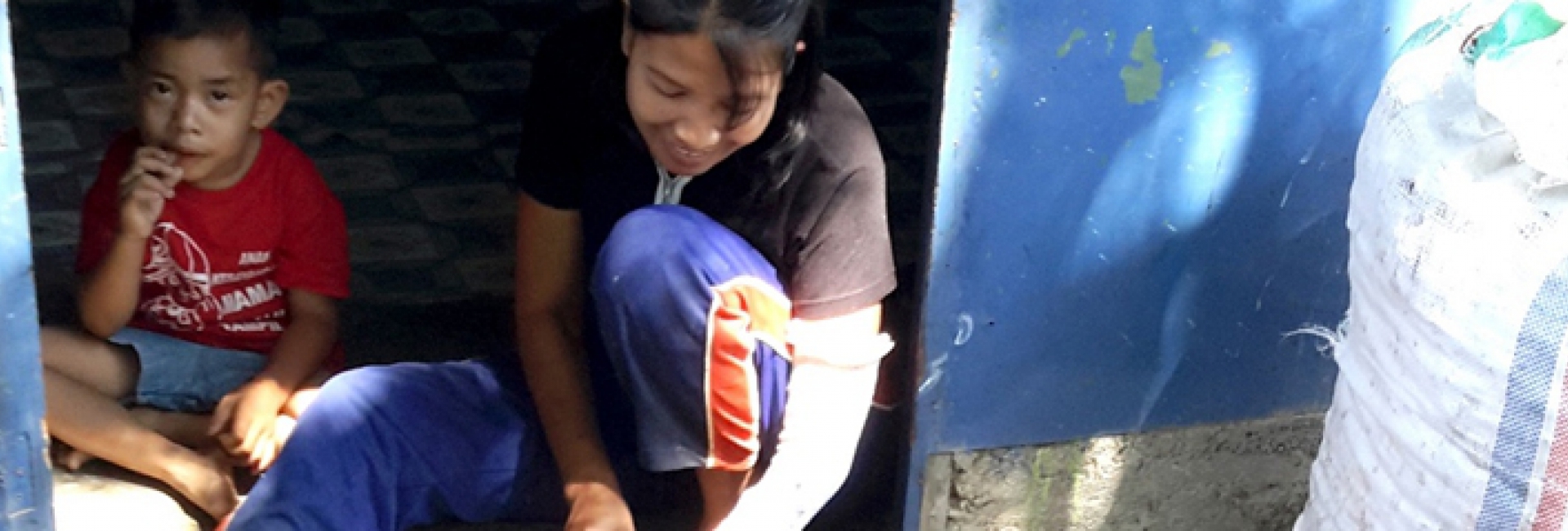This research is a part of a four-year longitudinal study from 2014–2020 which aims to analyze the impact of the fixed fuel subsidy policy on the livelihood of poor women, particularly on the livelihood aspects that are the working themes of MAMPU (social protection, employment, migrant work, maternal and reproductive health, and violence against women).
The Indonesian Government has enforced a new policy for the establishment of fuel subsidy, which is effective since 1 January 2015. The change in subsidy policy with the increase of fuel price does indeed have a positive impact in restraining the community’s fuel consumption rate as well as saving government budget. Nevertheless, the increase in fuel price also has an impact on the increase in commodity price, which is potentially declining community welfare, particularly that of the poor and vulnerable groups. To minimize such impact, the government has prepared the 2014 Social Protection Program (PPS 2014) package. PPS 2014 consists of Family Welfare Savings Program (PSKS), Smart Indonesia Program (PIP), and National Health Insurance (JKN).
Previous experiences show that similar program packages have been relatively successful in lessening the burden of the poor community in the short run. However, the poor community’s access to such program packages remains a serious problem. In particular, women show greater vulnerability compared to men during shocks. To find out the impact of the change in fuel subsidy policy on the livelihood of poor women, Maju Perempuan Indonesia untuk Penanggulangan Kemiskinan/Empowering Indonesian Women for Poverty Reduction (MAMPU) and The SMERU Research Institute conducted a module study.
As a national-scale shock, the change in the fuel subsidy policy has an impact on all the study areas but with different intensity levels, considering that several study areas have other sources of shock that make a greater impact on the livelihood of the poor community. There is an indication that the impact of the shock on men and women differs, where women’s participation in employment increases as an implication of the disturbance to the maledominated livelihoods. Male-headed families (MHFs) use risk management strategies in larger quantity compared to female-headed families (FHFs). This indicates the difference in capacity and characteristics between FHFs and MHFs, which in turn affects the process of making decisions on the number of risk management strategies employed. Nevertheless, this study does not find anysignificant difference in the access of FHFs and MHFs to the 2014 Social Protection Program (PPS 2014) package. With regard to the programs’ impacts, the study finds that PPS 2014 has minimal impact on women’s livelihood indicators.
This module study aims to analyze the impact of fixed-value fuel subsidy policy on poor women’s livelihood, particularly on the livelihood aspects which serve as MAMPU working themes. Specifically, the module study aims to understand:
- the impact of fuel price subsidy change on poor women’s livelihood,
- poor women’s access to PPS 2014,
- the impact of PPS 2014 on women’s livelihood, and
- the design and process of PPS 2014 implementation and its impact on the access of and the impact felt by poor women with the receipt of the package.
This research uses two methods, quantitative and qualitative methods, so that all questions can be sufficiently answered (see subchapter 1.2 Research Questions). Quantitative research method is used for answering research questions numbers 1–6 on (i) impact of fuel subsidy policy change on poor women’s livelihood, (ii) poor women’s access to PPS 2014, (iii) difference in risk managing strategies applied by female-headed families (FHFs) and male-headed families (MHFs), and (iv) PPS 2014 impact on poor women’s livelihood. On the other hand, qualitative research method is used for answering all research questions numbers 1–7. The quantitative research method of this study has an advantage; it is capable of measuring the impacts of shocks and PPS 2014 receipt on the livelihood of the communities in the study areas. Meanwhile, the qualitative method provides richer information compared to the quantitative one. Quantitative information will be beneficial to explain the quantitative method’s findings. Particularly for the fifth MAMPU working theme, violence against women, the qualitative research method is the only method used, considering that violence against women is more suitable to explore using more open and explorative qualitative method, compared to quantitative method.



